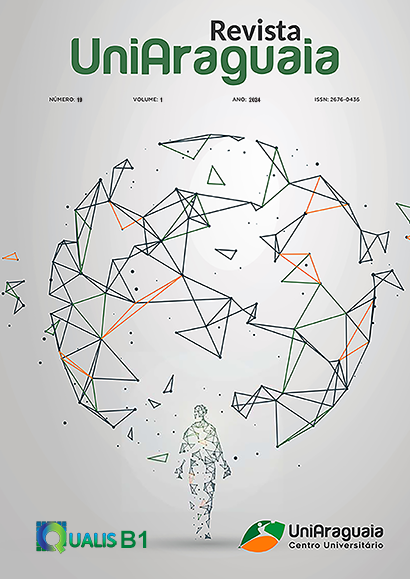EVIDENCE OF CONTENT VALIDITY OF A MEASURE OF ORGANIZATIONAL GOVERNANCE MATURITY
Keywords:
Maturidade, Governança Oragnizacional, Avaliação, MedidaAbstract
Understanding organizational governance maturity involves verifying whether the organization executes and follows the activities established in its governance framework (structures, systems, and processes). It is associated with the continuous improvement of an organization's skills and processes, aimed at increasing its productivity within a defined period, which is managed, measured, controlled, and effective as a process in organizational evolution. The study aimed to assess the semantic and content quality of the scale's questions, considering the degree of agreement on understanding, clarity, and importance of the proposed items. Seven employees from public institutions in Paraíba, predominantly male and from different areas of expertise, participated in the study, most of whom had a master's degree. Kappa, IVC, RVC statistics, and the Kuder-Richardson indicator were calculated. All items had agreement rates of over 80% regarding understanding, clarity, and importance; the Kappa index ranged from 0.90 to 1.00, the Kuder-Richardson's Rhô was 0.89, and IVC and RVC were 1.00. The instrument revealed that all items achieved a high percentage of agreement on the content evaluated by the participating judges, both in semantics and content. There was a high level of reliability in evaluating the content of the items, with perfect adequacy of content. The scale aimed at measuring organizational governance maturity is valid in its semantics and content. According to the judges' conception, the items corresponded to the logic and meaning of the theoretically raised questions regarding understanding, clarity, and importance, ensuring the robustness of content validation.
Downloads
Published
Issue
Section
License
Copyright (c) 2024 REVISTA UNIARAGUAIA

This work is licensed under a Creative Commons Attribution 4.0 International License.
The copyright of the published articles will be transferred to the Uniaaraguaia Magazine, allowing its subsequent reproduction as transcription and with due citation of source. In the event of acceptance and before the publication of the article, the plaintiff (s) shall write a statement formally transferring copyright to the magazine.
The author may also print and distribute copies of his article, provided that he mentions that the rights belong to the Uniaaraguaia Magazine.
Author rights include the right to reproduce in full or partly by any means, distribute this article, including figures and photographs.
By submitting originals to the Uniaaraguaia magazine, the author or authors express agreement with the following terms:
a) Authors maintain copyright and grant Uniaraguaia magazine the right of first publication, with the work simultaneously licensed under the Creative Commons Attribution license that allows the sharing of work with recognition of the authorship and initial publication in this magazine.
b) Authors are authorized to assume additional contracts separately, for non-expiration distribution of the work version published in this magazine (eg publish in institutional repository or as book chapter), with recognition of authorship and initial publication in this journal.
c) Authors are allowed and are encouraged to publish and distribute their work online (eg in institutional repositories or on their personal page) to any point before or during the editorial process, as this can generate productive changes as well as increase the impact and citation of published work.

